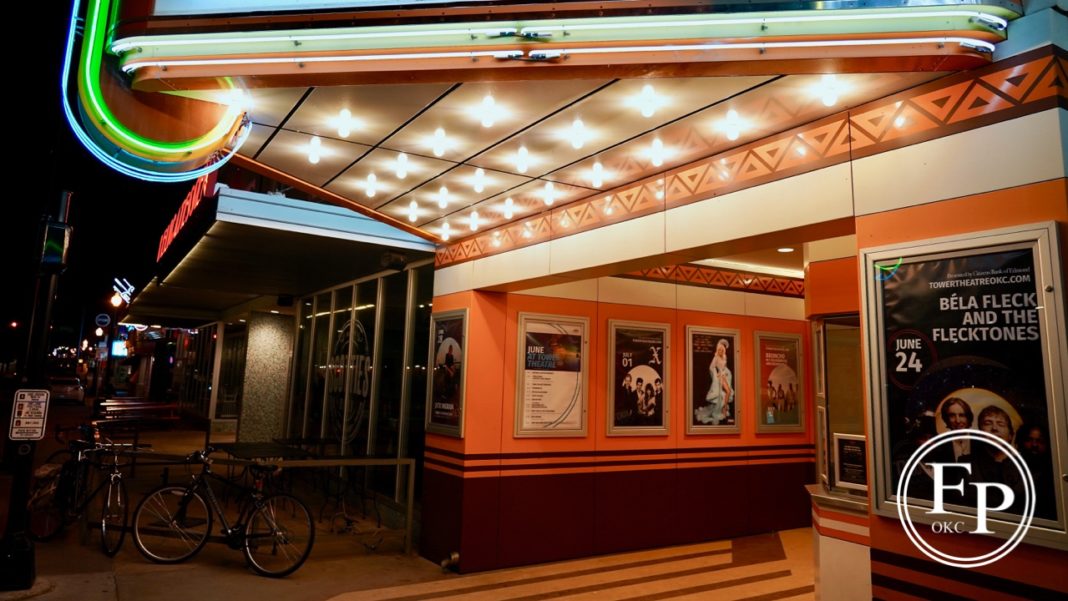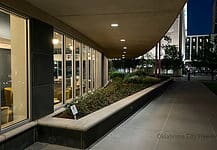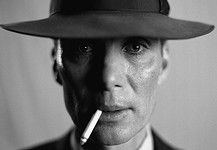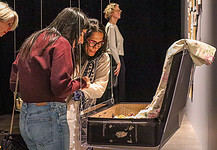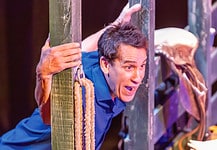Last Updated on February 11, 2021, 5:58 PM | Published: February 5, 2021
Three years after the once-dormant Tower Theatre re-established itself as a destination for concerts and curated movies, Chad Whitehead found himself shutting down the beloved 83-year-old venue. The COVID-19 pandemic quickly destabilized nearly every aspect of life, including what people do for fun, and there was no “how-to” manual for navigating it.
“In my connections with everyone in this industry nobody was talking about the pandemic,” said Whitehead, an operating partner at Tower Theatre, 425 NW 23rd St. “We were, acknowledging that it might impact business up until the South By Southwest cancellation, and that was really the first indicator.”
“I remember watching John Oliver talking about how we might need to be a bit concerned about this and I read the news pretty obsessively but it’s like it didn’t move from that column in my brain to a real-life, planning-for-it kind of way. So no, nobody, nobody talks about how you run a business that’s about gathering people if they can’t gather.”
Music and film
by Brett Fieldcamp
Sponsored by True Sky Credit Union

Whitehead said life started moving fast after the March 11, 2020, Oklahoma City Thunder game against the Utah Jazz got postponed minutes before it was to start. It felt real, and for several days, Tower staff was on the phone coordinating between artists, managers, and promoters.
He said his team approached the process of shutting down with an abundance of caution, because so many livelihoods were on the line, including their own.
Meanwhile, Whitehead’s wife, Chelsea Banks, had opened Workflow, a yoga and coworking space just two weeks before the pandemic hit critical mass. Nothing was going as planned, and while there were early hopes of keeping the Tower-adjacent bar Ponyboy open, those hopes dissipated quickly.
“I think by Monday morning we were meeting with the landlords and meeting with the bank, trying to figure out how we could give ourselves a little bit of space from the financial realities of a venue like Tower, so that all kind of crunched into a pretty tight window of time,” he said.
Moving forward required some public-facing measures that could keep Tower and Ponyboy visible during the closure, like starting a streaming music series, Live [stream] from Ponyboy, online concerts that began with performances by Tower partner Jabee, former Chainsaw Kittens lead singer Tyson Meade and singer-songwriters Greyson Chance and Carter Sampson in its first week.
However, in terms of actual operations, Tower was shut down for nine months.
In the background, Whitehead and his team were dealing with decidedly unsexy issues like finding ways to keep patrons distanced, revising Tower’s ticketing process and refitting the venue’s air conditioning to comply with Centers for Disease Control and Prevention (CDC) guidelines.
Whitehead said he received little guidance from state agencies on how to move forward, so they based everything they did on the CDC and their own best judgment.
“We sort of had to make up what we thought was reasonable based on the guidance we’d been given, so we went with social distancing and really took that very seriously and really stretched out the tables. And we redid the whole bar program: it’s no longer where you go to the bar to get a drink; it’s all table service now and table sign,” he said.
“We rebuilt merch so that if you’re at a concert you could just order the merch from your table and someone would bring it to you and then it would show up on your tab,” Whitehead said.
“We tried to minimize all the places where a line could queue. We stopped selling tickets at the box office, so you had to buy them online — that way, we always knew how many people would come in and it wasn’t going to change; you know, it might be less but it wouldn’t be more. So the team put a ton of resources and energy and really being thoughtful about what that could look like.”
These measures allowed Tower to host a few select concerts with limited seating, but the global touring industry is currently at a standstill. Most concert promoters and artists are still waiting to see a sizable reduction of cases as vaccines are slowly distributed, but because concert-goers tend to skew younger, the current push to vaccinate high-risk senior citizens means a watershed moment is still far away.
Fortunately, venues were thrown a lifeline by Congress. In December, the $900 billion stimulus bill passed and included $15 billion in “Save Our Stages” aid to help concert venues hang on until COVID-19 is significantly reduced. Whitehead said that former U.S. Representative Kendra Horn worked to include “Save Our Stages” funding in the bill after discussing Tower’s dilemma with him.
However, venues are not yet able to apply for those funds, which means Tower and other concert destinations are racing the clock to ensure they will survive to see a post-COVID concert market.
“The runway financially for venues is going from … maybe it was months, but it’s down to weeks for some venues. It’s time for that package to get to the venues that need it,” Whitehead said.
For now, Tower and Ponyboy are taking baby steps.
Ponyboy reopened January 19, and this week Tower resumes its film screenings with the new Studio Ghibli animated film Earwig and the Witch and A Glitch in the Matrix running Thursdays-Saturdays through February 19. Those films will be followed by the acclaimed A24 release Minari, which was shot in Tulsa in 2019 and will play at Tower February 19-27.
Seating for films is reduced to 20 percent of capacity, allowing for safe social distancing with masks. Whitehead said he feels that, for now, Tower is doing everything it can to keep its patrons safe.
“For the most part, people have been so responsible at Tower; we’ve had very few problems,” he said. “And I think a lot of that is because we’re going to tell you ten times before you get in the building what the expectation is, and there’s not any question about it and so we feel good about that.”
Visit towertheaterokc.com.
George Lang has worked as an award-winning professional journalist in Oklahoma City for over 25 years and is the professional opinion columnist for Free Press. His work has been published in a number of local publications covering a wide range of subjects including politics, media, entertainment and others. George lives in Oklahoma City with his wife and son.
